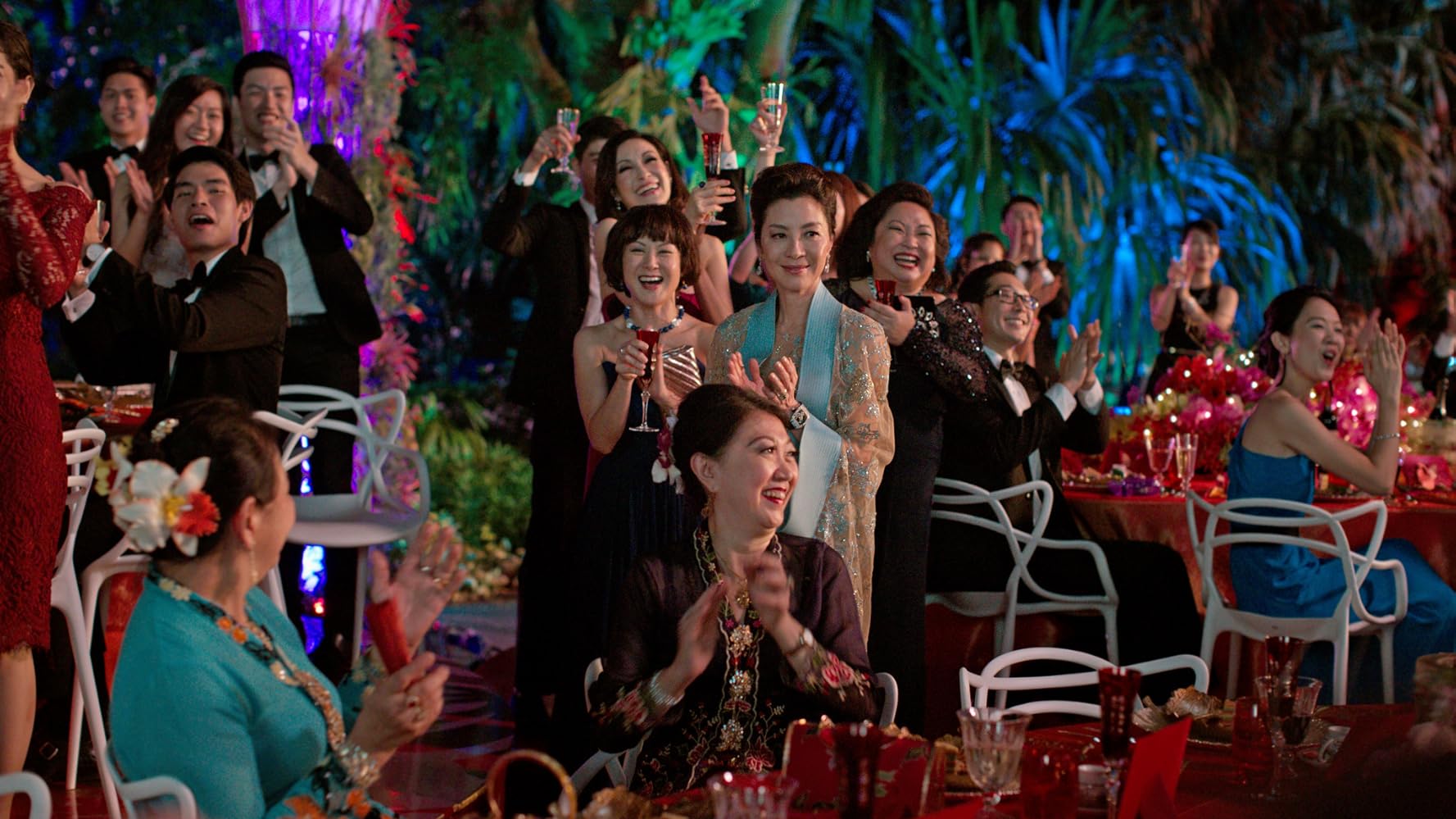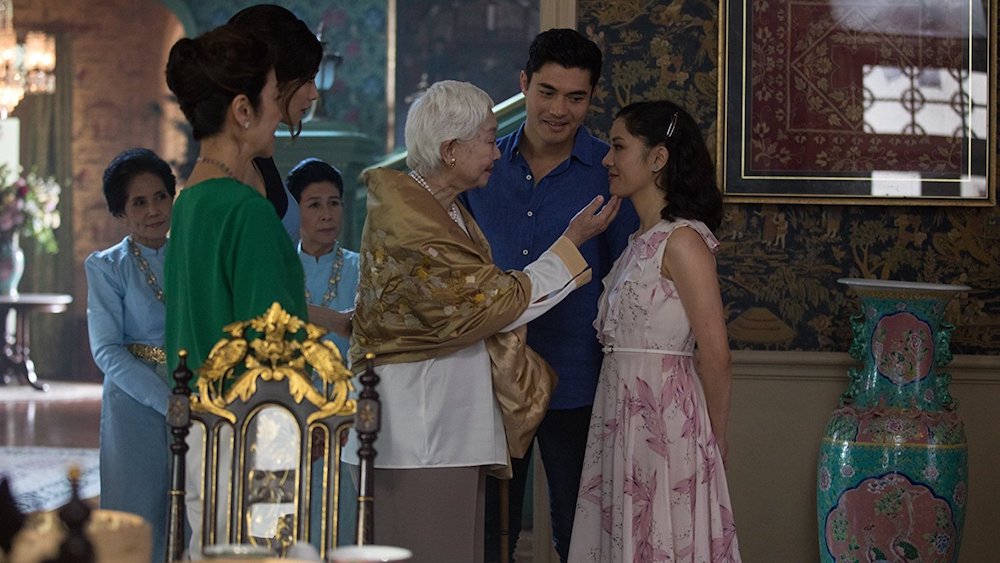The romantic comedy that hot Asians deserved
Much of the talk surrounding the film adaptation of Crazy Rich Asians is the need for Asian representation in Hollywood—while I’m with it all the way, it isn’t what attracted me to the movie. See, people seem to forget that being Asian and being Asian-American are completely different experiences, and here is a movie that is centered around that dichotomy.
Yes, this film at its bare bones is a pretty standard romantic comedy—shit, there’s actually a scene of the guy catching the girl to declare his love just before her plane takes off. But what makes this film unique is all of the added Asian texture—culture, architecture, social commentary and subtext, and most importantly, food. I swear, for every gratuitous shirtless shot in this film, there are two more close-ups of food.
Crazy Rich Asians
Director: Jon M. Chu
Release Date: August 15, 2018
Rated: PG-13
Based on Kevin Kwan’s novel of the same name, the basic premise of Crazy Rich Asians is a classic Guess Who’s Coming to Dinner sort-of scenario. Chinese-American Rachel Chu (Constance Wu) travels to Singapore with her Chinese-Singaporean boyfriend Nick Young (the ridiculously handsome Henry Golding) to attend the wedding of Nick’s friend. This is an opportunity for Rachel to meet Nick’s family for the first time—but in their long relationship, he failed to mention that his family is practically royalty due to their real estate business.
The film has Jon M. Chu in the director’s chair, whose less-than-impressive resume includes a couple of Step Up films, some Justin Bieber concert films, Jem and the Holograms, and Now You See Me 2. But something positive that can be said about all of those films is that they are all quite flash, and Crazy Rich Asians sure does have a lot of flash. This movie is bouncy, colorful, and fast, but always in a way that feels fun and never obnoxious. Swing music plays throughout, injecting even more energy into what sometimes feels like The Great Gatsby, but less white, and less cynical and depressing. This movie feels like a party.

The cast is large enough that I felt I needed an annotated copy of the novel in hand while watching this movie. But the important character to follow here is Eleanor Sung-Young, the matriarch of the Young family as played by Michelle Yeoh. Yeoh has a steely presence on screen, and the actress does an amazing job of very subtly conveying emotion. Nick’s mother is one to keep things close to the chest, and while it isn’t obvious from appearence what she may be thinking or feeling, Yeoh is able to give audiences the idea that the gears are turning in her head; it’s a fantastic performance.
Most of the supporting characters are members of Nick’s family, but none of them quite steal the show in the way Awkwafina does. Playing Goh Peik Lin, a college friend of Rachel, Awkwafina’s character is fast-talking, bubbly, and eccentric—laughs were to be had from almost every moment with her. While I don’t expect her to get the same level of recognition (because Hollywood), it recalled for me Melissa McCarthy’s Oscar-nominated performance in Bridesmaids for its constant hilarity, but sincerity at key moments. With the rest of the supporting cast, Westerners will likely only recognize Ken Jeong and The Daily Show’s Ronny Chieng, but both of them leave plenty of room for the extended, largely international cast.

Being a romcom, it contains a lot of the same basic themes from other films of the oh-so venerable genre. The main themes here are tradition and legacy: should children always be expected to carry the legacy of their family? And how does one handle it, when what your family has done before you is a force beyond your control? The final dramatic question that Rachel and Nick must ask themselves by the end of the movie is sappy and corny: how much can one sacrifice for your love?
But luckily, the movie has a little more depth than that. As you could likely gather from the description of Yeoh’s cold character, she isn’t one who exactly approves of Rachel as a potential wife for her son, and it all has to do with that dichotomy between Asians and Asian-Americans. Rachel is just too American and too different, Nick’s mother tries to argue—not to mention, she doesn’t believe that Rachel can carry the weight of the family’s reputation. Rachel is challenged by other characters: Nick’s former girlfriend (Jing Lusi), a socialite who leads a group of ladies in a campaign against Rachel, believing her to be a gold-digger. On a smaller level, Chieng’s character makes fun of Rachel for the basic fact that she isn’t part of another rich, Asian dynasty.
There are a lot of different ways that the excesses of wealth is portrayed in this film—mainly through the lavish production design. Almost every set, no matter how monotonous the scene, has a grandness to it. Otherwise, some brief street-level scenes in Singapore felt real, grounded, and authentic to contrast with the rest of the film. Nick’s family is one extended all over the world, working in different industries and planting a stake in the name of their family. Money can lead to something beautiful, like the elaborate wedding of Colin (Chris Pang) and Araminta (Sonoya Mizuno), but we see the other end of the spectrum with party boy and total douchebag Bernard Tai (Jimmy O. Yang). While the subplots in this movie overall can feel a bit distracting, the most interesting one centers around Nick’s cousin Astrid (Gemma Chan), whose husband, not unlike Rachel, is self-made and middle class. Unlike Nick and Rachel, the differences between Astrid and Michael (Pierre Png) are more irreconcilable.

It’s easy to view this as just another romantic comedy—and that’s because it basically is. There isn’t too much surprising about the movie, and the plot at its most basic is something that audiences have probably already seen. Not to mention, with all of the plotlines that the film inherits from the book, it’s difficult to care about most of them in comparison to the primary thread.
Crazy Rich Asians requires you to see past that, because there is more to the film than romcom tropes. I do not mean this to be a pun, but the film is absolutely rich in subtext and commentary regarding cultural differences, the spoils of wealth, and family dynamics. Yes, the theme of sacrifices for love is cheesy, but it is delivered in a way that is relatable and resonates quite well. I don’t need to go on my usual diatribe about how representation matters—smarter people than myself can say it better than I can. But I will say this: having a standard romcom that stars exclusively Asian performers is what makes the film more than standard, because it simply does not happen in Hollywood. I couldn’t begin to tell you how much I, an Asian-American, vibed with Rachel’s struggle to fit into a world that is in a way hers, but at the same time not her world at all. She may look like everyone, but to her, it is still a strange, foreign country.
Crazy Rich Asians is funny, fast-paced, and educational in a way—and man, do I love shots of food. This movie will make you pretty fucking hungry.









